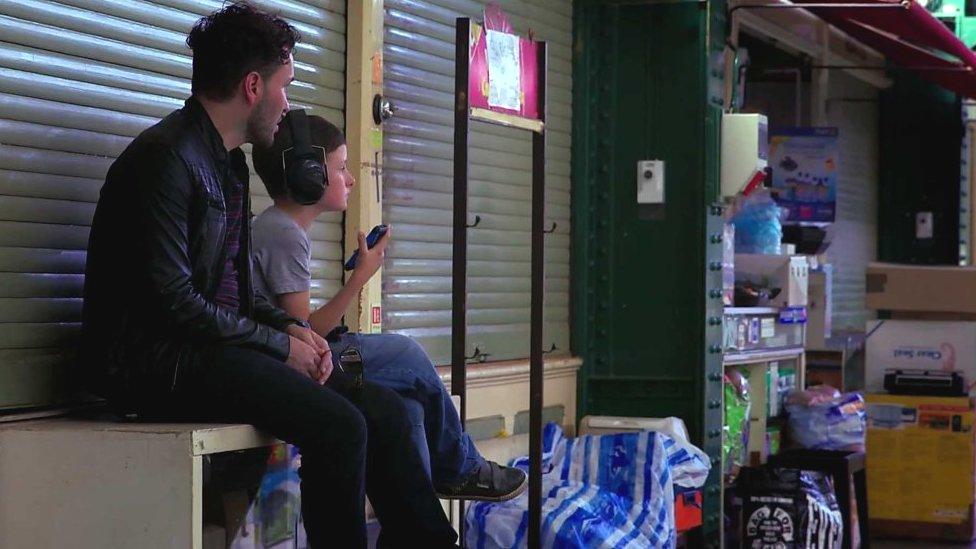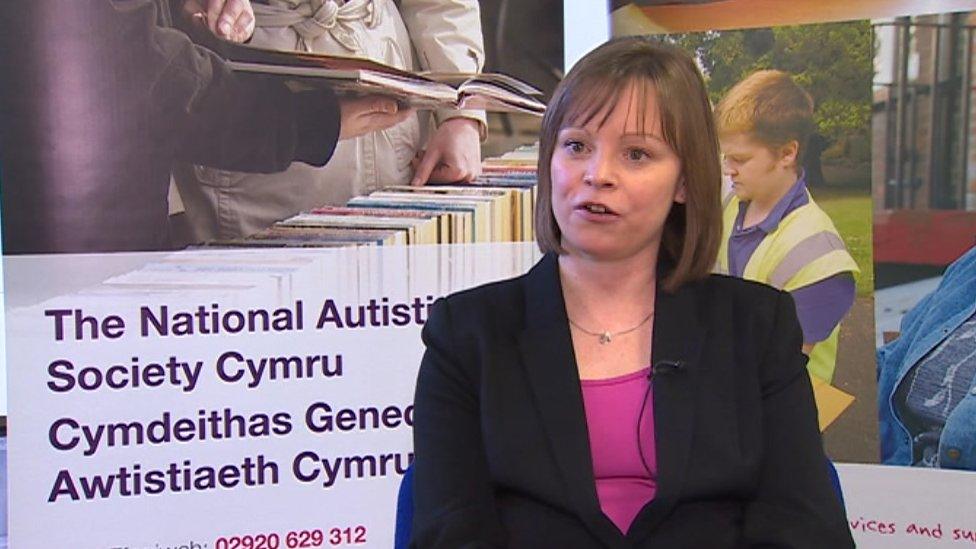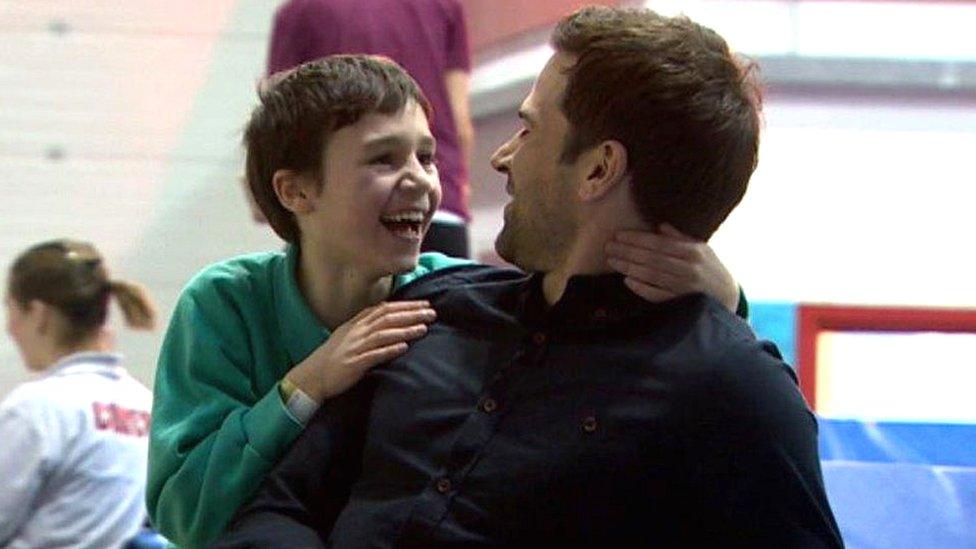Autism concern over home schooling rise in Wales
- Published
- comments

The number of pupils being taken out of school to be taught at home has doubled in four years - with many of them believed to be autistic.
Some 1,906 pupils were removed in 2016-17, up from 864 in 2013-14, according to council data.
National Autistic Society Cymru, external said many were autistic children who were struggling to cope in school.
The Welsh Government said it was committed to creating an inclusive education system for all learners.
Children's Commissioner for Wales, Sally Holland, said she was concerned some schools wanted autistic children removed to improve their results.
Meleri Thomas: "A lot of parents have no option"
Erika Lye, who has three autistic sons, runs a home education group in Rhos, Neath Port Talbot.
She said 80% of the children who attended were on the autistic spectrum and many were not there through choice.
"It's easier to send your child to school," she said.
"Nobody would choose this if there was a better system. If the state worked then we would be putting our children into school."
By law, a child has to receive an education but it does not have to attend school or follow a set curriculum.
The council figures - received by BBC Wales by all but one council following a freedom of information request - found the highest number of pupils leaving school to be home educated was among older secondary school pupils.
In 2016-17 there were 332 children aged 15 taken out of school, compared to 156 children aged 11.
The figures do not include children who are home schooled but who have never been registered.
Meleri Thomas, from the National Autistic Society Cymru, said the school environment often proved too challenging for some autistic children.
She said: "A lot of parents are finding themselves in positions where they have no options and the only thing they can do to help their children is to educate them at home even though they might not feel fully equipped to do that or want to."
Sally Holland said she was also concerned: "Some parents have told me they have been encouraged to home educate because their child might be affecting the school or local authority's performance data around exam results or attendance figures."
'Lack of support'
The latest report, external by the Special Educational Needs Tribunal for Wales showed families with autistic children lodged more appeals about the lack of support their child is receiving in school than those with other learning needs.
National Autistic Society Cymru has called for mandatory training on autism awareness in schools.
A Welsh Government spokesman said if passed, its Additional Learning Needs (ALN) Bill would overhaul the system for supporting learners with additional learning needs.
The spokesman added it had agreed extra funding for the collection and analysis of local authority data on elective home education to investigate why some parents choose to do it.
He said it hoped this would identify trends so councils could consider what measures, if necessary, could be put in place to support families when children are still in school.
- Published7 November 2017

- Published30 May 2017

- Published8 April 2017

- Published8 April 2017

- Published4 April 2017

- Published1 March 2016

- Published4 March 2016
